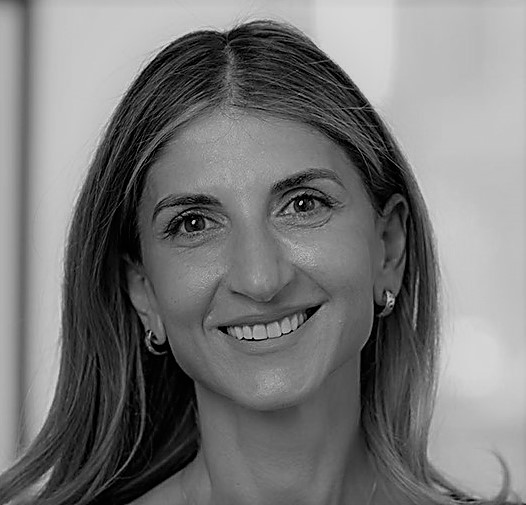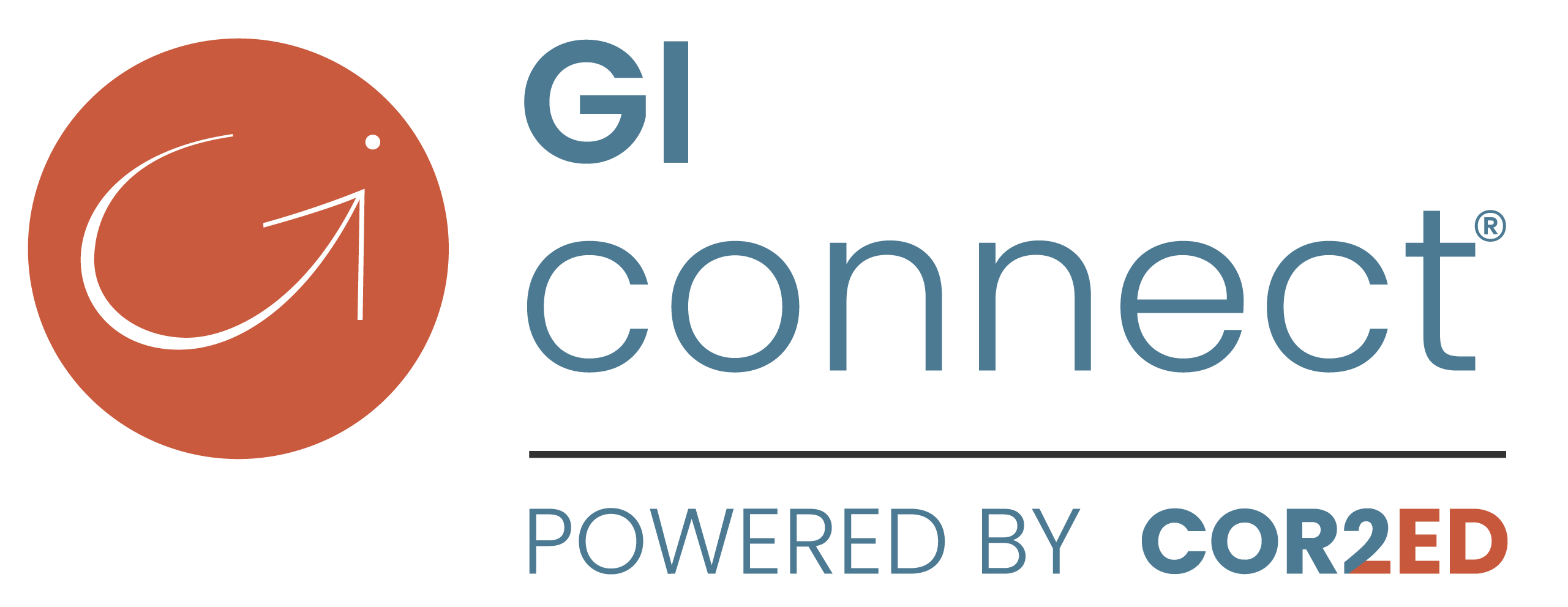Podcast transcript
GI CONNECT Update from ESMO 2022: upper GI cancer highlights
Please note:
GI CONNECT podcasts are designed to be heard. If you are able, we encourage you to listen to the audio, which includes emotion and emphasis that is not so easily understood from the words on the page. Transcripts are edited for readability. Please check the corresponding audio before quoting in print.
This GI CONNECT programme is supported through an independent educational grant from Bayer and is an initiative of COR2ED.
The views expressed within this podcast are the personal opinions of the authors. They do not necessarily represent the views of the author’s academic institution, or the rest of the GI CONNECT group.
Samuel Klempner
Hello and welcome to this podcast covering upper GI highlights from ESMO. I'm Sam Klempner. I'm a GI medical oncologist at Massachusetts General in Boston, and I'm joined by a good friend, Dr. Yelena Janjigian. Yelena, you want to introduce yourself quickly?
Yelena Janjigian
Yes, thanks for having me, Sam. It's a pleasure to discuss updates from ESMO 2022. It was a great Congress in Paris. We're all back reliving the meeting and so it's a perfect time to discuss what we've learned.
Samuel Klempner
Yeah, so we're going to hit the highlights. We'll talk a little bit about some frontline data and then move into the second line space. You know, I think this whole world of gastro-oesophageal cancers continues to evolve, which is a good thing for our patients. So I'm going to start off by asking you about some data that you presented which leads into maybe some bigger questions about how to move beyond your CheckMate 649 data. So, you had a nice poster from a Fellow looking at the combination of FOLFOX and PD-1 and building upon that. Do you want to talk a little bit about that?
Yelena Janjigian
Yeah, thanks. So one of my junior colleagues, Dr. Cytryn, presented - exciting opportunity for a junior, to showcase your junior faculty and fellows. This is a follow up to CheckMate 649. We know that most of our patients in first line setting derive a degree of benefit from immune checkpoint blockade. But given the fact that our tumours are chromosomal unstable and quite complicated, the tumour microenvironment needs a little bit of a boost and so that's the rationale behind many of the combination studies that are ongoing now. Our Phase 2, FOLFOX, regorafenib, nivolumab is one of them. This is building on the work showing the tumour targeting with trastuzumab for example, and anti-PD1 therapy combination may help augment the antitumour immune response. So we looked at first-line patients irrespective of PD-L1 status and assessed progression free survival and overall response rate and other markers of clinical benefit in first line setting. What's probably one of the more striking findings about the study is that the rate of PD-L1 positivity in first line setting was substantially lower than what we saw in CheckMate 649, using 28.8 antibody. Some of it is likely to be patient selection because people were probably directing a patient to a study if they were PD-L1 negative. But also, it's the difference in PD-L1 testing amongst the studies. We found that the study met its primary endpoint (6-month PFS), the progression-free
survival benchmark that we were hoping to achieve - we did. So this is again confirmatory data to consider combination strategies in first-line setting.
Samuel Klempner
Yeah, I think trying to address the potential immunomodulation of antiangiogenic therapy is definitely a strategy that has some legs in this disease. It's similar to this trial, I know you've also been involved in some of the lenvatinib studies and we've certainly seen some mixed frontline later line LEN (Lenvatinib) PEMBRO (pembrolizumab) data in the past. But we did see a little bit of an update and some clues into how this phase three regimen is going to be tolerated. I don't know if you want to give us a little highlight of the lead in from this trial?
Yelena Janjigian
Yeah. So LEAP-015 is a large Phase 3 study that's currently ongoing globally. I would say in the United States since Checkmate 649 made immunotherapy available for all, the accrual in the United States was a bit difficult because the comparator arm did not have immunotherapy. So that will make the data interpretation a bit harder once the data is available. But globally, the study had no problem accruing and in the United States we also put a few patients on mostly PD-L1 low tumours. Essentially it's the same question - will lenvatinib help move the bar above what we've accomplished with CheckMate 649? We know KEYNOTE-62 data with pembrolizumab in first-line setting initially was disappointing. We do think pembrolizumab and trastuzumab are very similar drugs, so that should not be a factor. But whether or not, you know, I mean the preliminary data presented at ESMO suggested that the combination was doable. It's tolerable. Grade 3/4 adverse events rate was, as you would expect, and it's manageable. So let's see if it's better. It’s too soon to say but certainly preliminary data suggest that it, as you said, may have some potential in subset of population.
Samuel Klempner
Do you think - just since we have you here and you sit at a position of sort of seeing the 10,000 foot view over the landscape - do you think that the patients that are going to be enrolled in these novel combination strategies are going to be pre-selected for the PD-L1 low population since we sort of have a standard? Or do you have no concerns about enrolling a PD-L1 say, CPS-high patient onto a combination since they're getting IO potentially in both arms?
Yelena Janjigian
Yeah, it's a great question. I think for the studies that have IO in both arms then the question is what's the risk to the patient and adverse event profile? And I can tell you the answer is always try to put the patient on the clinical trial. But if a trial, for example, like LEAP-015, did not have an IO in comparator arm. Our patients are quite informed and knowledgeable. And you know, as an oncologist, I wouldn't necessarily risk randomisation to a non-IO arm, particularly in patients with PD-L1 five or higher tumour. I think it's a bit of a stretch, especially in the United States where our patients don't like to be randomised to begin with. But I actually was very excited to see your updates from the DisTinGuish trial and you know, we need better biomarkers to augment the antitumor response. What is your experience with the drug and the development of this agent?
Samuel Klempner
Yeah. So as you said, it's really all about biomarkers. And I think there's a lot we still need to learn about these patients. But one strategy has certainly been trying to modulate the microenvironment towards a perhaps more favourable mix. You know, we know that a portion of these patients are enriched for myeloid derived suppressor cells and T regulatory cells and maybe
sort of reversing that immune contexture might allow for better response to checkpoint inhibition. And that's sort of the broad theory behind targeting DKK1, which is potentially a novel biomarker. Essentially patients with high DKK1 tumours seem to be enriched for some of these immunosuppressive features and associated with a worse prognosis. So there seems to be identifying a biologic subset meant some resistance to 5FU. So in the past, targeting this strategy had been done in the later line setting in combination with pembrolizumab, where looking back on the patients, the responders were heavily enriched for DKK1 high tumours. So it begged the question of could we develop a biomarker enriched strategy to potentially improve upon the outcomes? But initially this required some development in the front line. And so the DisTinGuish trial is actually now a three part study, but originally a two part study, with a front line and a later line cohorts. The front line is what was presented at ESMO. And this is a combination of 5FU platinum in this case CAPOX and a PD1 agent tislelizumab in combination with DKN-01 with the main goal of trying to, as you said, improve upon what we get for 5FU platinum and PD1 alone. And essentially out of the enrolled patients, one thing, a couple of high level highlights, the biomarker prevalence seems to be somewhere in the 40 to 50% range. So if this holds, it's, it may be relevant for a pretty large portion of our patients. And then encouragingly, in the biomarkers enriched group, the DKK1 high patients, the response rate was quite high at 90% in that subset. So we're encouraged by this, but it's relatively small numbers in non-randomised data. So what's happening now and we hope to see in the future is that there's a randomised phase two which compares 5FU platinum and tislelizumub versus 5FU platinum, tislelizumab and DKN-01 and this is exactly what you were saying. So I feel comfortable enrolling essentially all comers onto this trial because both arms are getting the IO. But I agree in non-IO containing control arms it becomes a little bit of a discussion with these very informed patients, but certainly an encouraging signal.
Yelena Janjigian
What about dual anti-PD-1, CTLA-4 blockade? You know, it's the more drugs you add, obviously there's more toxicity. We've considered using a stepwise approach, right, sequencing the drugs, which is also an interesting question to answer. We saw data from the MOONLIGHT study. What is your take on it?
Samuel Klempner
Yeah, I know you've been involved in some of the later line IPI (ipilimumab), NIVO (nivolumab) checkmate 32 data in the past. So we sort of knew what the safety and potential early efficacy markers were from this combination. And of course it was an arm in 649 as well. But the question remained is, as you mentioned, if you could do this sequentially and potentially leverage the benefit of remodelling with chemotherapy and then come in with the dual checkpoint blockade versus in a totally upfront combination way. And it's a little bit of an unfortunate result. But this was a well conducted study from the German group in a 2 to 1 randomisation of 5FU NIVO IPI all concurrently versus 5FU followed by IPI NIVO and then NIVO with IPI spaced out farther as sort of per the standard. And really what they show is that their PFS at six months was really not substantially improved. Perhaps there was some activity, you know, response rate was there and a little bit higher in the combination arm. But I think this is a tough strategy to take forward after this data and perhaps there's some subsets in there. You know, as they tried to tease apart the PD-L1 expressing patients, maybe there are some people who would do better with the dual checkpoint blockade, but it's hard to envision either of these arms going forward in large studies. And I don't know what your opinion of an upfront FOLFOX IPI NIVO triplet is, but I think that there may be are some other combinations that will rise above that.
Yelena Janjigian
Agreed. And particularly it was disappointing results for certain because you know, my inclination, interpretation of CheckMate 649 data and as you mentioned CheckMate 32 data before is that in IPI responders, patients who respond to IPI, the duration of response is quite dramatic. And so it is a worthy endeavour. But given the MOONLIGHT data and the toxicity profile and the fact that now there's newer, better CTLA-4 inhibitors that are Fc modified with less and more favourable adverse event profile, I think we're moving on from NIVO IPI to the next sort of phase of our drug development and everyone's super excited about tumour targeting and immune checkpoint blockade, but I think there is still role for immune checkpoint blockade combinations with newer inhibitors. So we'll stay tuned for the next wave of the data to read out. What about FOLFIRI based combination? What are your thoughts about that? That was another study. Certainly, you know, a little disappointing, but curious to see what you think.
Samuel Klempner
Yeah, I mean, as you well know, not everywhere around the world has equal access to frontline checkpoint inhibitors and the approvals in the EMA are slightly different than some of the other approvals globally. So there is still a portion of patients who won't get a checkpoint in the front line. So the French investigator group, which has always done very good work, essentially, were trying to ask a question in the second line setting where maybe they use a little more front line triplet with Flot, etc.. So there's a little bit more FOLFIRI. And the French have always been believers in FOLFIRI. And actually we've used FOLFIRI periodically in the second line as well, but they are essentially asking the question of FOLFIRI plus durvalumab versus, and FOLFIRI, plus DURVA (durvalumab) and TREME (tremelimumab). So, they're asking a question about second line population and combining. First, is it safe to do FOLFIRI and checkpoint inhibitor? There's not as much data there, so it's good to have data. And second, do we see a signal? So they were asking both of these arms whether or not they would improve the PFS at 4 months beyond what a sort of their target range was, 70% PFS at four months. What they did show is that actually neither arm achieved the primary goal, but they did see some, a little bit hard to interpret in sort of these data sets, but there were definitely some tails on these curves. There was an overall PFS that was at least comparable to what we've seen in second line. And there were some durable responses. But the regimen, as you suggested, with this CTLA-4 and checkpoint is not without toxicity. And there was almost a 50% rate of grade three or higher adverse events. So this is in a second line setting where we're not talking about curative intent. I think all of these things need to be weighed against the toxicity and what we may achieve with standard. But I do think there's still a role to asking questions about the later line use of checkpoint inhibitors. You know, with the increase in front line use, are there ways and strategies to consider continuing these agents potentially beyond progression and salvaging with traditional regimens or other checkpoint inhibitors or molecularly inform strategies? So it's good data to have. It's unfortunate that we didn't see more encouraging results, but I do think that the French deserve congratulations.
Yelena Janjigian
Well, you know, I think, as you alluded to, to me, it is still useful data. We knew that beating TAXEL (paclitaxel) RAM (ramucirumab) is not going to be easy, but I would say the toxicity profile is surprisingly, you know, it's not so bad. So, certainly again, second line setting is tougher, but what it gives me is some assurance. We have sometimes patients who are not platinum candidates in first line setting. Right. And so if you were to try to use immunotherapy in first line and you couldn't use FOLFOX, perhaps extrapolating from those data, you could be reassured to use it because we know FOLFOX and FOLFIRI are equivalent in some studies that we looked at from the French group. So there may be some utility for this study, even if it's not practice changing. It's good to have in your sort of slide deck to review with the fellows as they come through your clinic.
Samuel Klempner
Yeah, I completely agree. I mean, we've had a few patients, as I'm sure you have with, you know, essentially anaphylactic oxaliplatin reactions every once in a while where you really even with all the descents in the ICU, you just can't go back and use the drug. So this is definitely something that's nice to have in your back pocket to know that there's some safety data there.
Yelena Janjigian
Exactly. Or patients who are FLOT failures, for example, and recurred within six months. And you just don't want to use a platinum. But they have not had immunotherapy yet. So this is a cohort of patients that you may consider irinotecan based first line therapy. And here now you have PD-1 as at least reassuring data that you're not going to be hurting those patients because the concern is obviously for overlapping liver toxicity and so forth.
Samuel Klempner
Totally agree. And, you know, the question of toxicity is something that brings us to one of the other data presentations from ESMO, which was an update in a group of patients that I know is dear to your heart, which is the HER2 positive population. So we saw an update from DESTINY-Gastric02. Maybe you can give us the high level of the study population and the high level results?
Yelena Janjigian
Sure. You know me, I can talk about HER2 the rest of the day, but this is obviously an important patient population. Right. We knew for over a decade that HER2 is an important target, but in second line setting, many of the studies have failed. And the reason why is because it's a relatively heterogeneous disease and becomes more heterogeneous as the cancer progresses. So using antibody drug conjugate trastuzumab deruxtecan, was really successful strategy came in DESTINY-Gastric01 which was the randomised phase two study looking at T-Dxd against Investigator Choice, third line therapy. Right. This was already what led to the FDA approval of trastuzumab deruxtecan even in the United States but in other countries, in Japan. So in the United States it's approved after trastuzumab failure. So technically in second line or beyond and in Japan in third line. So that's why it was critical to have a Western experience with trastuzumab deruxtecan. And that's where a DESTINY-Gastric02 comes in. It's a single arm study, very much selective patient population where biopsies at the time of progression on trastuzumab were mandated. And this actually is in the FDA package insert of recommendation that if you can please biopsy your patients at trastuzumab progression and at ESMO, we saw updates from that data set. So basically the confirmed overall response rate is very similar to what was initially presented and published. Disease Control Rate was very favourable to what you would expect, with similar HER2 negative strategies, right. With Paclitaxel, and ramucirumab and the adverse event profile is what we see associated. I think often, we forget that this is chemotherapy, right? We're used to perhaps thinking of it as a targeted agent that is not maybe as toxic, but it's definitely a chemotherapy. It has 1:8 drug to antibody ratio so higher than many of the other ADCs. And you see bone marrow suppression, which in U.S. patients, we actually see a little less in Japanese patients because in the US it's mostly a second line study, but you see nausea and vomiting and liver dysfunction sometimes. But one of the side effects that everyone's very concerned about, particularly in second line setting, is interstitial lung disease. We don't see a particularly high rate of ILD not as high as you see perhaps in lung or breast cancer, but it is a real risk and you have to monitor your patients carefully. And so it was nice to see the Western experience updated by one of my
colleagues, Dr. Ku, who presented this data. And again, we use this drug in the clinic, standard practice now,we do biopsy at the time of trastuzumab progression and offer it to the patients and it's a great option.
Samuel Klempner
Maybe my last question for you, just practically speaking, for all the people listening, do you guys do anything special for monitoring beyond looking at ILD on the standard response assessment scans, no special interim PFTs, etc.? You know, sometimes we hear about this.
Yelena Janjigian
Yeah, and this is a very good question Sam, and comes up quite often when I speak to my colleagues and the answer is no. You have to monitor them carefully with scans. And when I say carefully, read the scan and look at the results yourself, look at the images. Because often these small ground glass specifications are not even, they don't make it into the impression. It's in the body of their read because the radiologist doesn't know what treatment the patient is on. And these GGOs may be completely insignificant in that, you know, age of COVID, where everybody has some sort of upper respiratory infection. So you have to do your own surveillance. In clinical trials such as DESTINY-Gastric03. As you know, we're taking this regimen perhaps to first line. We do recommend pulmonary function tests, but honestly, it's not a very common occurrence for ILD. So to do PFTs in clinical practice for all, it's a bit of an overkill. I think you just need to talk to your patients and monitor the scans carefully because if you stop at grade one or even possibly intermediate between grade one and two ILD. Most of these patients do just fine. There are very few, if any, grade five events. There was one grade five event, death, on DESTINY-Gastric02. It's more common in breast cancer patients because they get a lot more therapy and also many more of them have chest radiation and other factors. But in gastric, you know, you should be fine with just routine scans and just, you know, looking at the scans carefully.
Samuel Klempner
Yeah, that's been my experience as well. Well, look, this was an awesome rapid fire review. It's always great to see you and hopefully next time will be in person. So I want to thank everyone for listening and want to thank Dr. Janjigian again for giving us her time. And I look forward to talking again.













 Downloadable
Downloadable  20 MIN
20 MIN
 Feb 2026
Feb 2026 







